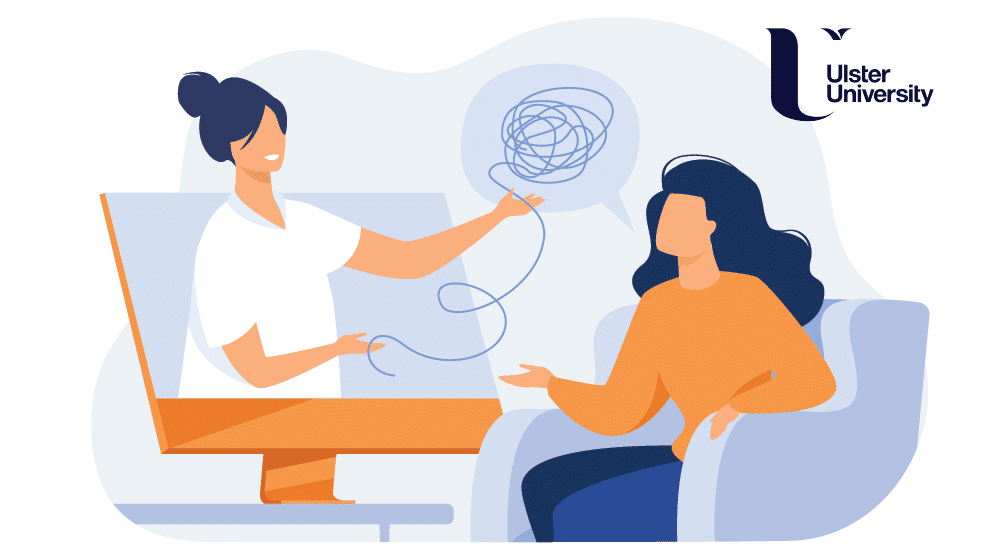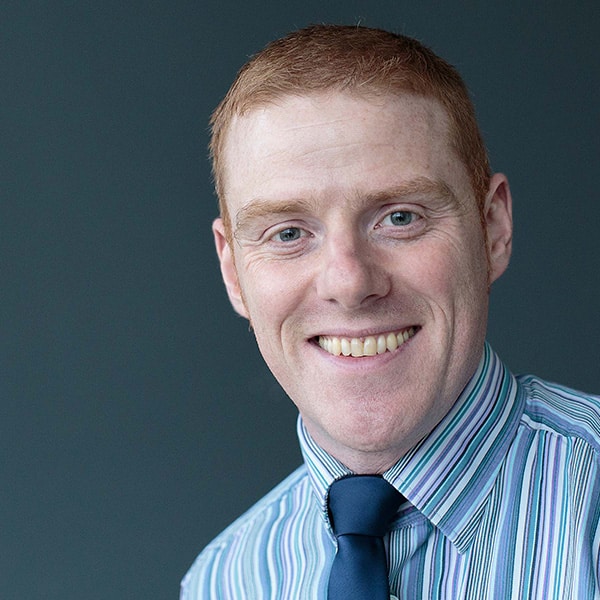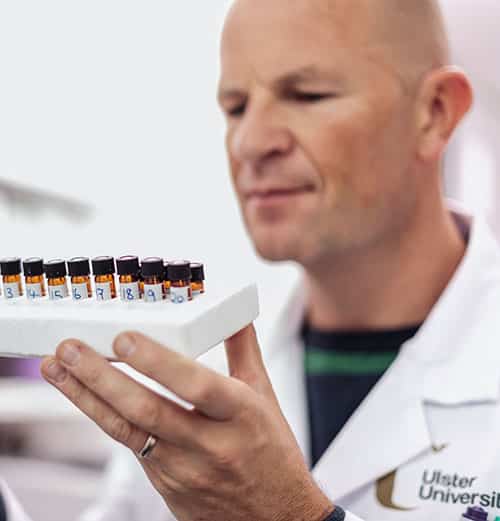Blogs
Keep up with all the latest thoughts and opinions.
We make it happen.
Psychology conversion courses: what are they?
Monday, August 7th, 2023

Considering a career in psychology? Wondering what you can do with a masters in psychology? Confused about what a psychology conversion course means?
In a post-pandemic world and with an increase in people seeking mental health services, there is significant demand for qualified psychology professionals. As part of the NHS’ Long Term Plan, mental health services are set to receive an “investment worth at least £2.3 billion a year in real terms by 2023/24” which will “provide high quality, evidence-based mental health services to an additional 2 million people” (HEE). With this need for psychology professionals, now could be the right time for you to start your psychology career.
There’s a lot of information out there, and although it can seem overwhelming, don’t panic! If you’re looking to move into the field of psychology, you’ll first need to choose a course that meets your needs and is right for your career aspirations. In this article, we’ll breakdown several important areas including what a conversion course means, why it’s important that your course is accredited, what you can expect to study, and what kind of career options are available.
1. What is a Psychology conversion course?
Typically, a Psychology conversion course is a postgraduate programme that prepares someone for a career in a field/subject that is unrelated to their undergraduate degree. They’re usually more vocational, and in the UK there are a number of conversion courses for areas such as psychology, nursing, IT, property and social work.
Especially popular with professionals looking to switch careers, conversion courses tend to be more flexible in terms of how they’re delivered, and are normally shorter than an undergraduate degree, making them a manageable and affordable option for busy professionals ready to make a career change.
1.1 Who is this psychology conversion course for?
Psychology conversion courses have a few purposes, but broadly speaking they’re vital for professionals who want to:
- Forge a successful career in psychology – a conversion course will cover the core areas of psychology, teach valuable research skills, and help people bridge the gap so they can make that career switch
- Apply the principles of psychology to thrive in a non-psychology related role – an understanding of human behaviour and the human mind is a valuable skill that will serve professionals well various industries outside of psychology, including marketing, advertising, recruitment and law. A Psychology conversion course provides this understanding along with the framework to practically apply psychology principles.
- Gain a recognised and accredited qualification – to work in the field of psychology in the UK, it’s essential to have a qualification accredited by the British Psychological Society (BPS). We’ll explore this in more depth below, but generally speaking, a psychology conversion course will provide this accreditation, so it’s perfect for professionals looking to move into the field or for people who may have previously studied a psychology programme but are not already eligible to gain Graduate Basis for Chartered Membership (GBC).
1.2 Am I eligible for a Masters in Psychology?
Conversion courses are designed with the understanding that most people will not have previously studied the subject in question, and so the entry requirements tend to be relatively broad. For a Psychology conversion course, the entry requirements may differ depending on the institution you apply to. Generally, most conversion courses will require you to have a 2:1 or 2:2 honours degree in any subject from a UK university, or an equivalent standard qualification from another country.
You’ll also need to provide evidence of competence in written and spoken English (e.g., a GCSE grade C), and most institutions will highlight their English Language Requirements on their course page.
In some cases, institutions may consider non-standard applications, for example, if you have a lower degree classification, substantial and significant experiential learning, or you have a portfolio that demonstrates you meet the graduate qualities of the course.
2. Do I need to complete a Psychology conversion course?
If you’re considering a career in psychology in the UK, it’s essential that you have a BPS-accredited qualification so that you can progress in the field. If you didn’t study psychology at undergraduate level, then a conversion course is the best way of getting the qualification you need.
Once you have this qualification, the good news is that there’s significant demand for trained psychology professionals. The UK government has added all psychology roles to the list of occupations currently facing shortages (GOV), while Health Education England has advised that the “psychological professions workforce alone will need to grow by at least 60 per cent between March 2020 and April 2024” (HEE).
2.1 Where will my qualification lead?
The field of psychology is vast and continually expanding, so it’s useful to understand the types of roles available to psychology graduates. While these areas may require further specialised study, professionals who hold an accredited psychology qualification may go on to work in roles including but not limited to:
- Clinical Psychologist
- Educational Psychologist
- Health Psychologist
- Occupational Psychologist
- Forensic Psychologist
- Sports and Exercise Psychologist
- Teacher
- Further Education as a PhD Student
- Mental Health Practitioner
- Counsellor
- Researcher
2.2 How can a Psychology conversion course help me switch career?
By studying a Psychology conversion course, you’ll develop an understanding of the core areas of psychology and gain a solid grasp of research skills and techniques. This combination of theoretical knowledge and practical research skills is essential for any professional psychologist.
Throughout your BPS-accredited conversion course, you’ll identify and explore specific areas of interest, and likely undertake a research project module. By conducting your own research project, you’ll dive deeper into a topic area that you’re truly passionate about, and this will help you establish which direction you’d like your career to move in.
Perhaps more importantly, by studying a BPS-accredited psychology conversion course, you’ll become eligible to gain Graduate Basis for Chartered Membership (GBC) status – this is fundamental for switching careers and will enable you to go on to further study and specialise in your preferred area of psychology.
3. What does a Psychology conversion course cover?
The course content covered by a Psychology conversion programme may differ depending on the institution and the academic expertise of the staff. However, if you study a BPS-accredited programme (the gold standard for psychology courses), the curriculum will meet some core requirements. This means that you should expect to study the following areas:
- Social Psychology
- Individual Differences
- Research Methods (Quantitative and Qualitative)
- Developmental Psychology
- Cognitive Psychology
- Psychobiology
- Project Design and Planning
Apart from the core curriculum, some courses may have modules outside of the BPS requirements that are unique to that programme. Here at Ulster, we have a topical module dedicated to the Psychology of Mental Health – a vital area of study for students looking to become mental health professionals.
3.1 What skills will I gain?
By studying a Psychology conversion course, you’ll gain a variety of highly valuable skills.
From a theoretical perspective, you’ll graduate with knowledge of the core areas in psychology, from social, cognitive and developmental through to psychobiological. Alongside this, you’ll also be aware of psychological assessment tools and know how and when to apply them.
Throughout your studies, you’ll continually expand your critical awareness, so you’ll be able to evaluate and analyse research, assess the quality of your own research, and understand the importance of ethics and identify potential concerns and solutions.
Finally, you’ll develop a range of transferable skills, including time management, independent working, group collaboration, and effective communication and presentation skills. Equipped with an array of research skills, you’ll develop your problem-solving abilities, understand and apply both quantitative and qualitative methods, and be able to confidently design, execute and present your own research.
As noted in the American Psychological Association’s 2022 trends report, psychologists are “increasingly viewed as having the chops to function in a wide variety of industries. That’s because psychology training emphasises a multitude of in-demand skills, from data analysis to building functional multidisciplinary teams”.
4. How do I choose a programme?
Studying a Psychology conversion course is an investment in yourself and your career, so it’s important that you choose a programme that’s right for you. When it comes to studying, two important questions to ask are:
- Is the course accredited by the British Psychological Society?
- Does the programme deliver any unique modules beyond the BPS requirements?
4.1 What is BPS accreditation?
With more than 65,000 members, the British Psychological Society (BPS) acts as the representative body for psychology and psychologists in the UK. The Society champions psychology, psychologists and the wider psychological professions, promoting research excellence and working to maintain the highest standards in psychology.
Studying a BPS-accredited course is essential for any psychology professional. A BPS-accredited qualification signifies that you have studied a rigorous curriculum, and that you have successfully demonstrated the necessary skills to graduate and work in the field. By completing a BPS-accredited course, you’ll be eligible for Graduate Basis for Chartered Membership (GBC), meaning you’ll be able to progress to the next step in your career – either starting entry-level work or engaging in further study to specialise in your chosen area of psychology.
Find out more about studying a BPS-accredited conversion programme
4.2 Can I study any unique modules?
The modules you’ll study will largely depend on the institution, and whether the course is accredited by the BPS. At Ulster University, our MSc Psychology (Conversion) course includes a unique module that goes beyond the requirements of the BPS, which is dedicated to the Psychology of Mental Health and reflects the School of Psychology’s strength in health-related research.
On this module, you’ll explore the biological, psychological and sociological approaches to understanding and treating psychological conditions, discuss the nature, prevalence, diagnostic course and treatment approaches for different conditions, and integrate relevant theories and policies to explain the psychology of mental health in a real-world context. You’ll also benefit from engaging with up-to-date mental health data which is featured in teaching across the course.
5. What’s my next step?
So now you have a better understanding of what a psychology conversion course entails and you appreciate the importance of studying a programme accredited by the British Psychological Society to obtain GBC status. You are now also aware of the modules you can expect to study, the skills you’ll gain, and the typical careers psychology graduates can move into.
If you’re still interested in forging a rewarding career in psychology, then studying a BPS-accredited conversion course is the perfect next step. At Ulster, our MSc Psychology (Conversion) course is designed with flexibility in mind. With our carousel programme structure, you can study at a pace that suits you and take study breaks if necessary. You’ll also benefit from a range of resources to support you throughout your studies, including a dedicated Student Success Advisor who will be on hand to support and guide you from registration through to graduation.
So, why not study at Ulster University? We remove the stress, so you can focus on success.
“It was a super nice experience at Ulster, easy to onboard, and the Student Success team made me feel comfortable. Although it’s an online course, the personal touch from the team really helps.”
– Oteri Kueberuwa, Health Psychology



